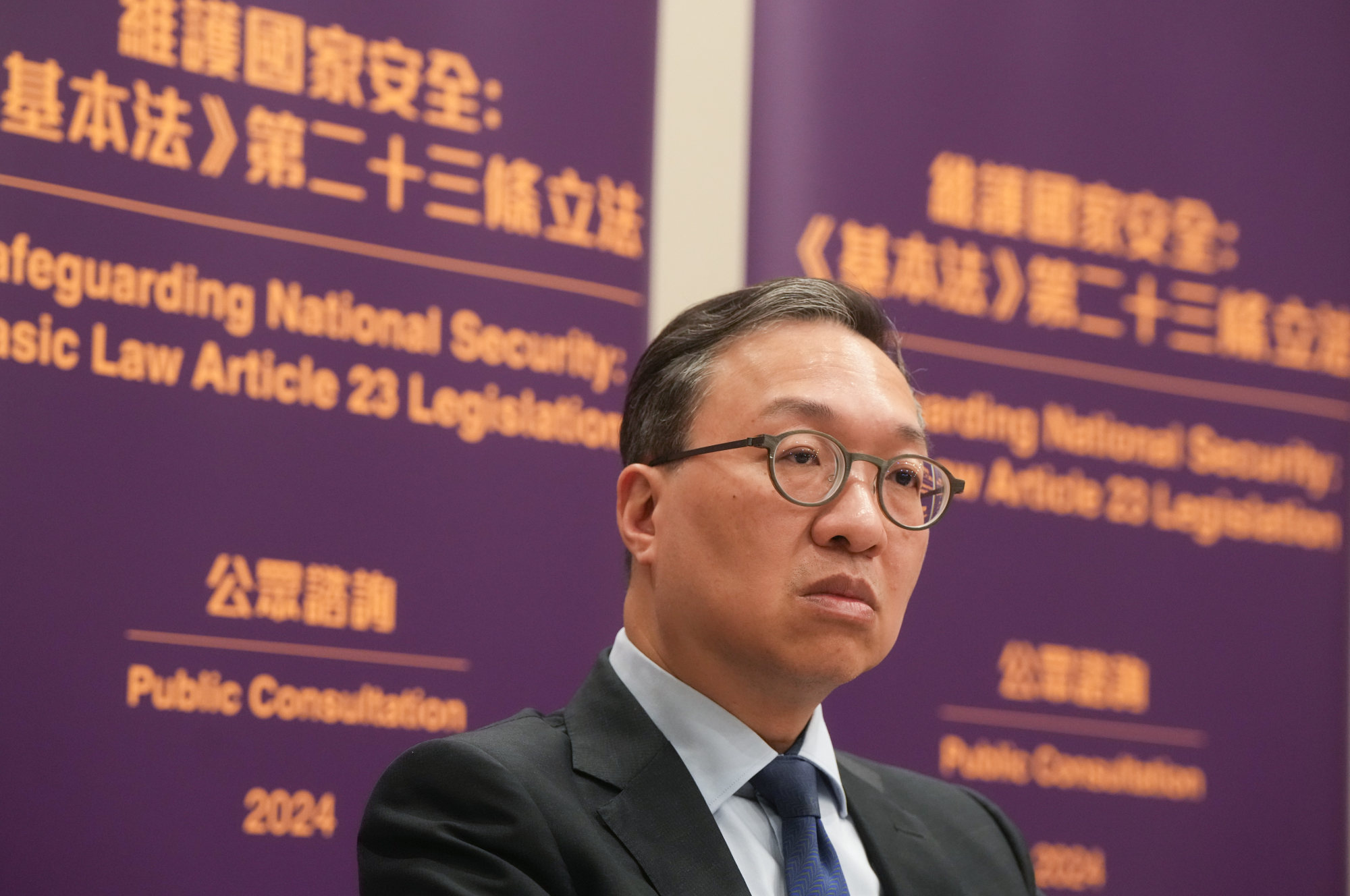Regina Ip hits back at criticism of domestic national security legislation, insists it will not turn Hong Kong into another mainland Chinese city
Asked whether Hong Kong’s internet and data operations would be affected after the legislation was enacted, Ip stressed the consultation document did not say it would involve handing over the city’s data to the mainland or vice versa, calling the concerns “completely wrong”.
“What worries many foreign businessmen the most is whether Hong Kong will be turned into another Chinese city. I think we should keep explaining to them,” she said.
Hong Kong’s Article 23 law likely to state maximum penalties for offences: minister
“Over the past few years, all consulates sent their representatives to listen to trials of some big cases. Our courts allowed them to listen and live-streaming services started to be offered. Have they found any irregularities in court? No.”
Ip stressed the relevant legislative work in Hong Kong was being carried out in accordance with the city’s common law system.
“The amended regulations and reference examples are all common laws and regulations, and will not affect judicial independence, the rule of law and one country, two systems at all,” she added.

Secretary for Justice Paul Lam Ting-kwok earlier said he had heard no objections to the proposed law at meetings and that residents and “foreign friends” understood Hong Kong had a constitutional responsibility to enact its own national security legislation.
But some foreign business chambers and diplomats told the Post they were concerned about risks to investment and potential enforcement standards that could affect their nationals under the local security law, despite many of them showing public support for the proposed legislation.
More clarity needed on Hong Kong security law to reassure investors, experts say
A local national security law is mandated by Article 23 of the Basic Law and will create a string of new offences.
These are: treason; insurrection, incitement to mutiny and disaffection, and acts with seditious intention; sabotage; foreign interference; theft of state secrets and espionage.
The legislation will sit alongside the Beijing-imposed national security law, which outlaws secession, subversion, terrorist activities and collusion with foreign forces.
Public consultation on the new legislation will end on February 28 and the government has said it plans to put the bill to the legislature this year.